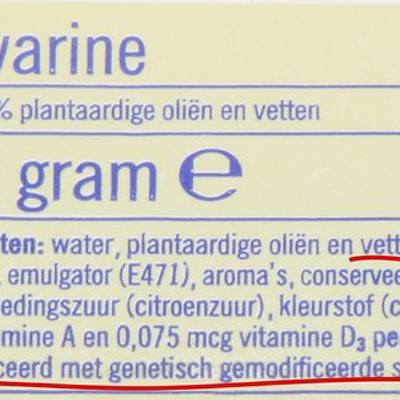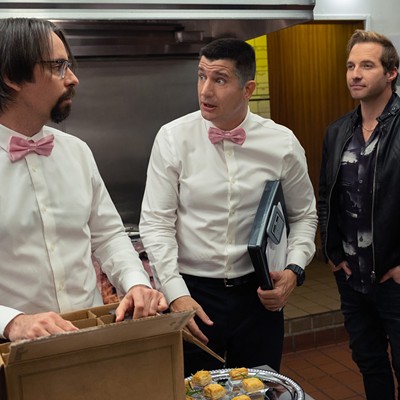Sunday, September 29, 2013
Who's Really "The One who Knocks" on Breaking Bad?
Knock, knock.
Who’s there?
Tonight, as thousands of Breaking Bad fans will tell you, the one who knocks is Walter White.
It’s probably the most famous speech in the entire five-season run of Breaking Bad, inspiring countless gifs and tumblr photos, podcast titles, T-shirt designs, literary parodies and a Samuel L. Jackson reenactment.
In the midst of an argument with his wife over whether he’s put his family in danger, Walt pulls off his undershirt, revealing a T-shirt dark red like congealed blood. And then his voice changes, drops lower and colder, as he lays into his wife’s reasoning.
“Who are you talking to right now? Who is it you think you see? Do you know how much I make a year? Do you know what would happen if I suddenly decide to stop going into work? A business, big enough to be listed on the NASDAQ goes belly up, disappears! It ceases to exist without me. No, you clearly don’t know who you’re talking to, so let me clue you in. I am not in danger, Skyler. I am the danger. A guy opens his door and gets shot and you think that of me? No. I am the one who knocks.”
And then, as if dropping the mic, he walks into the bathroom, slams the door, and starts taking a shower.
It’s understandable why the speech is beloved by the type of fan who sees Breaking Bad as a show about badass lines and sweet-ass shootouts.
But it’s easy to forget that when Walt gives that speech it’s a complete and utter lie. It’s impotent bluster. It’s a powerless toddler, writhing on the linoleum, kicking his feet, screaming and crying that he’s a big boy and you’ll be sorry. It’s an embodiment of the same sort of pride and masculine sensitivity that will eventually destroy everything Walt has built and cares for. After all, he gives that speech in an episode titled, appropriately, “Cornered.”
After all, in that very same room he delivered that speech, madmen with axes had sat on his bed, waiting for him as he obliviously hummed “Horse with No Name” in the shower. But for the grace of Gus, Walt would long ago have been hacked into pieces.
Walt is a prisoner, working under constant video surveillance. He’s got multiple crosshairs trained on him, following his every move. He’s pissed off his boss — the sort of boss who runs a box cutter across the throat as a severance package. And his boss, in turn, is caught in the middle of a feud with the Mexican cartel.
Rewind a few seconds and see that it is Skyler, not Walt, who has the stronger arguments.
She’d been listening, on repeat, to a voicemail from the One Who Knocks, “I just wanted to say I was thinking about you, and the kids. And I love you.” It had clearly been sent while Walt was in danger.
“If we’re in danger, we go to the police,” Skyler insists as Walt scoffs. “If it’s the only real choice we have. If it’s either that or you getting shot when you open your front door — you’re not some hardened criminal, Walt. You are in over your head. That’s what we tell them. That’s the truth. A school teacher? Cancer? Desperate for money? Roped into working for — unable to even quit?! You told me that yourself, Walt. Jesus, what was I even thinking? Walt, please, let’s both of us, stop trying to justify this thing and admit you’re in danger.”
Skyler’s assessment is absolutely accurate.
The One Who Knocks is not a description of who Walt is. It’s who he wants to be. It’s purely aspirational. Throughout most of the Season 4 he’s just as pathetic. He bluffs and yells, but nothing he do can really change his situation. Toward the end, as he lays helpless in the crawlspace, cackling at the absurdity of it all, as the phone rings with a warning, as the camera slowly shakily zooms out, as the composition shows Walt trapped in his own grave, there’s a percussive pounding, deep and slow, on the soundtrack.
It sounds a hell of a lot like knocking.
But Mr. White went into that crawlspace as Walt, and came out as “Heisenberg.” It’s as if, in those manic panicked moments in the crawlspace, he signed a deal with the devil, trading the tattered remains of his soul to finally truly become the One Who Knocks. He crosses even more moral boundaries, does even more horrible things. Manipulates. Poisons a child. Blows up a bomb in a nursing home.
It works. Through science and subterfuge, Walt topples the man who toppled the cartel. “It’s over. We’re safe,” Walt tells Skyler. “I won.”
At the start of the next season, he flicks a couple of switches, and suddenly he’s Carrie at Prom — paperclips slide, shelves topple, computers fly through the air, and the laptop evidence against him is magnetically erased. The very rules of physics bow before Heisenberg.
How do they even know that worked? Mike growls on the drive home.
“Because I say so,” Walt replies, voice drenched in arrogance and confidence. He’s Scarface through way of The Secret. The power of positive thinking erases all obstacles in his way. Seven episodes later and all he has to do is tell a couple of swastika-tattooed thugs to “figure it out” and 10 lives are snuffed out. That swagger continues through the next episode, where instead of hiding from his DEA agent brother when he suspects he knows, he confronts him, telling him to “tread lightly.”
But like all deals with the devil, it comes with a time limit. There’s a time the devil comes to collect. Walt loses his one-who-knocks mojo.
All his money and all his scheming and silver-tongued pleading are no match for a couple of white supremacists with semi-automatic guns. They shrug off his threats and his negotiations and his bribes. Breaking Bad seems to have answered the age-old philosophical debate of “Who would Win a Fight? Cavemen or Astronaut?” resoundingly in favor of the Neanderthals with the bigger clubs. Brute beats brain.
Walt knocks as hard as ever, even rings the doorbell a couple times, but nobody answers. No matter what he says, he’s rejected, ignored, or disparaged by absolutely everyone he knows. His wife wards him off, slashing at him with a kitchen knife. Walt’s son drops his crutches to wrestle his father to the ground. Baby Holly coos for her mother instead of her father.
Walt’s powers are even worthless with the sniveling lawyer Saul Goodman. “You remember what I told you,” Walt says, in his One Who Knocks voice. “It’s not over until I say…” and then he collapses into a fit of cancer-ridden coughing. Goodman exits for his own spinoff, and Walt doesn’t bother to follow.
And as he hides in a snow-covered cabin 2,200 miles away, with only Mr. Magorium and a $10,000-an-hour card dealer to keep him company, the danger he dismissed descends upon away from Albuquerque. Three separate home invasions of the sort Skyler feared pack the penultimate episode.
It’s no coincidence that it’s Nazi nephew Todd who’s the one who knocks on Andrea’s door.
Skyler’s nightmare plays out before Jesse’s eyes. Andrea, a total innocent, opens the door and she’s shot.
Knocking, however, is a courtesy. These thugs don’t feel bound by such politeness. They bash down the Schrader residence door off its hinges and take what they desire. They enter the White residence without appearing to open a door at all. As a breeze blows through the open window in the baby’s room, masked men cover Skyler’s mouth, threatening her, making her swear not to talk.
At any time, of course, Walt could have ratted out the Nazis. He knows where they live. He could have summoned a platoon of police officers to dismantle the entire operation. But that would have meant admitting that Skyler was right, that his family was in danger, that he had lost the power to protect them. That would have meant spending the last few months of his life behind bars.
And so, of course, it was wounded pride, not his love for his family, that catalyzed tonight’s return to Albuquerque.
It’s very possible that this final episode will allow Walt to ascend to the badass days of yore, that it will be one long hail of 50 cal bullets and ricin-dusted dishes. But I hope it’s not. I hope that Walt finally realizes who he is and who he isn’t. That he fully reckons with what he’s done. And that he’ll hear one last knock upon his door.
Do not ask for whom the door knocks, Walt. It knocks for thee.
READ OUR OTHER BREAKING BAD COVERAGE
How Breaking Bad Redeemed Its Worst Mistakes
Breaking Bad is the best TV show I’ve ever seen. Yet that greatness didn’t come from the absence of mistakes. Far from it. Breaking Bad had plenty of problems. The secret was: It fixed them. Showrunner Vince Gilligan and his writers have this incredible, alchemical talent to take their mistakes, their errors and the show’s weakest points and spin them into gold.
A man controls. A man is feared. A man is respected — as a husband, as a father, as a genius, as a king, as a monster. A man makes money and cooks meth and deals death and builds empires. A man sells his soul to please his ego. A man knocks, and demands that doors open.
White and Black and Shades of Walt
For the first few episodes, I scoffed at how fast Walter decided, ‘Hey, I got cancer, might as well make meth.’ But by Season Two, I understood: Even before the cancer, Heisenberg — his simmering, unpredictable anger — had lurked inside Walter. And as the show progresses, the two sides, the milquetoast and the madman, begin bleeding together.
Many shows have achieved greatness by following TV's rules and creating beautiful narratives within those rules. But Breaking Bad doesn't succumb to the whims of necessity. After Season Two ended, TV rules dictate that Walt would go straight back to cooking meth. Because that's the premise. Instead, it spent the first half of that season exploring the soul-sapping pain of a collapsing marriage.
And it did so ruthlessly.
Tags: Breaking Bad , TV , Video , Image





















